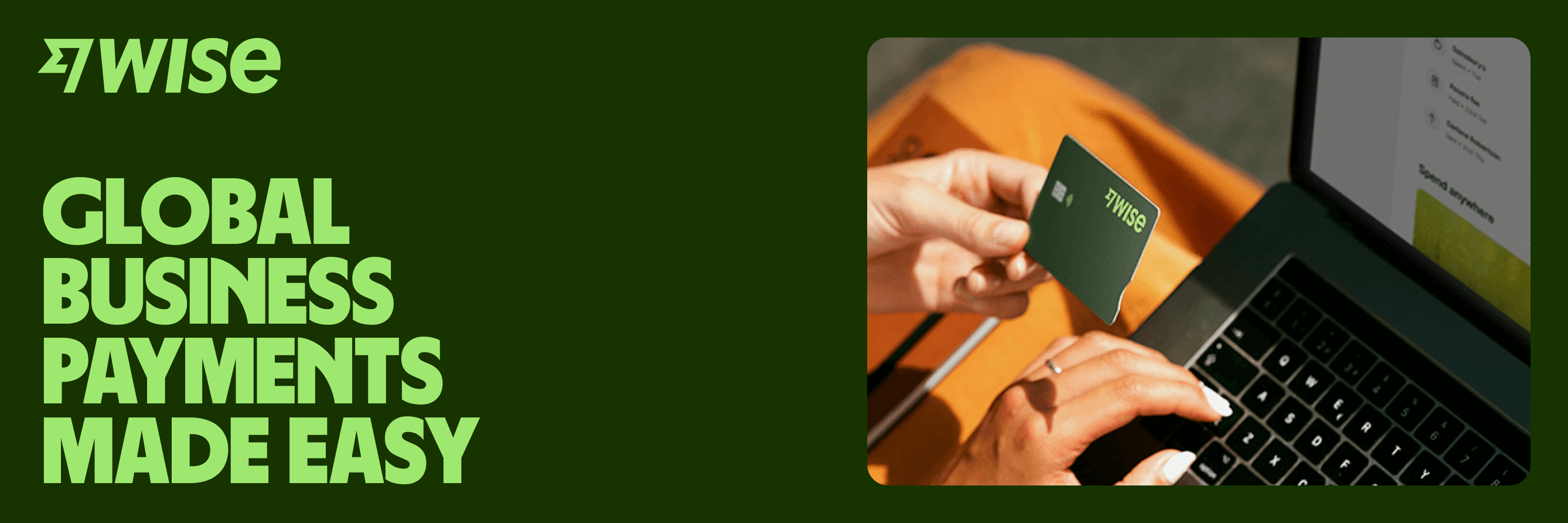Sprout pricing and plans guide for the UK (2025)
Learn about Sprout Social's pricing and features. Compare plans and add-ons to find the right solution for your business and optimise your subscription.

As a business owner, not being paid on time or at all can quickly become a huge headache. It can also be difficult to know what the steps in the debt collection process are and how to best recover your money. And it’s the last thing you want to deal with. Unfortunately, it happens more than any of us would like with research telling us that 3 out of 5 UK businesses are owed money from late payments¹. This can feel even more overwhelming if you’re dealing with customers abroad or with different currencies.
At Wise Business we get it. It’s why we make it as easy as possible for you to take payments, whether it’s locally, internationally or through an e-commerce platform. In this article, we’ll look at:


The debt collection process for businesses is collecting money you’re owed as a business owner, for instance, an unpaid invoice. This process follows a specific framework and legal guidelines which are designed to protect the rights of both parties: the debtor, who owes the money, and the creditor, who is due the money. The debt collection process has a number of steps, starting with informal reminders and going all the way to legal action. As a UK business owner, knowing these steps and when to take them can protect your business and take action when you need to.
Debt collection in the UK is highly regulated and must follow the legal guidelines set out and regulated by the Financial Conduct Authority. The main principle is that all creditors and debt agencies need to act fairly, honestly and professionally when collecting debt. Out of context, these steps can be difficult to understand so let’s look at a case study to see stages of debt collection.
Imagine you own a business which sells computers, and a customer fails to pay an invoice worth £1000. The first step would be to check if your payment terms and conditions are in order and that the payment is actually late. If they are, you would get in touch with the customer, letting them know the invoice hasn’t been paid and giving a deadline for payment. If you receive no response, you’ll then send reminder notices followed by a formal letter before action, letting the customer know your intention to take legal action to recover the debt.
If you still haven’t received payment, you can choose to use a debt recovery specialist to begin legal proceedings. These agencies will be able to tell you about your options and help you take legal action, mediate disputes or write off the debt if needed. Using these expert services often mean you’re more likely to get your money back and protects you from any legal pitfalls.
Send your client a reminder of the overdue invoice and ask for payment. Remember to include the invoice details, payment terms and when it’s due. If you don’t get a reply, you might want to write or phone again to remind your client.
A letter before action is the first legal step in the debt collection process. You’ll send a letter to your customer laying out:
You can check templates for late payment letters in our article about the Best Practices for Chasing Payments.
If your client hasn’t paid, you may want to consider hiring a debt collection agency. A debt recovery agency can handle proceedings professionally, helping you maintain your relationship with the client and increasing the likelihood of the debt being paid. It can also save you time, money and ensure you comply with all the legal requirements.
An impartial professional can help both sides reach an agreement in this confidential process. This is usually cheaper and quicker than legal proceedings.
If mediation doesn’t work, you can make a court claim. This will incur some fees and can be submitted online or posted. When you begin legal proceedings, you can also claim interest on the money you’re owed. In the UK, the statutory interest is 8% plus the Bank of England base rate for business-to-business transactions². You can also charge a fixed fee to contribute to the costs of recovering the debt. These are currently:
The international debt collections process works slightly differently due to different legal jurisdictions, legislation and currencies. If you’re working with international clients, we would recommend including international terms in contracts and asking an expert for advice if you need to collect debt abroad.
The easy it is to collect payments, the less likely you are to run into trouble. It’s why Wise Business exists, so people like you can do business without borders. With a Wise Business account, you can get local bank details instantly, keep all your international payments in one place and avoid high currency conversion fees. This makes it easier for your customers to pay and you receive the money quicker.⁴
Get started with Wise Business 🚀
Professional debt collection agencies have the tools, expertise and time to collect debt so using their services can save you time and spare you a lot of stress. It’s also typically the fastest way to collect debt. However, while some agencies offer a no collection, no fee service, it can still be a significant cost.
Yes, you can. Under UK law, you can charge the 8% plus the Bank of England’s base rate per day². If you’re owed £1000 and the base rate is 2%, you can work out the interest like this:
The length of time it takes to collect debt can vary. It can begin when an invoice is 30 days overdue and in a straightforward case, it would normally be paid within 4 to 6 weeks. However, it can take up to 6 months to recover debt in more complicated cases.
Wise can help UK businesses to get paid by customers in multiple currencies, with low fees and the mid-market exchange rate.

Your Wise Business account comes with local account details to get paid in major foreign currencies like Euros and US Dollars just as easily as you do in Pounds.
All you need to do is pass these account details to your customer, or add them to invoices, and your customer can make a local payment in their preferred currency. You can also use the Wise request payment feature to make it even easier and quicker for customers to pay you.
Get started with Wise Business 🚀
As a business owner, you have enough on your to do list without having to worry about overdue invoices and the effect that has on your cashflow. To prevent this being an issue, it’s worth double checking your contract and terms are watertight and that your payment methods are as straightforward as possible. However, if you do find yourself being owed money, the debt collection process is there to help you, beginning with sending a reminder, a letter before action and culminating in legal action if needed.
< small> Sources used:
Sources last checked on 29-Jan 2025
*Please see terms of use and product availability for your region or visit Wise fees and pricing for the most up to date pricing and fee information.
This publication is provided for general information purposes and does not constitute legal, tax or other professional advice from Wise Payments Limited or its subsidiaries and its affiliates, and it is not intended as a substitute for obtaining advice from a financial advisor or any other professional.
We make no representations, warranties or guarantees, whether expressed or implied, that the content in the publication is accurate, complete or up to date.

Learn about Sprout Social's pricing and features. Compare plans and add-ons to find the right solution for your business and optimise your subscription.

Learn about Hunter plans and pricing to find the right plan for your business and streamline your lead generation.

Learn how much tax you’ll pay as a UK sole trader in 2025. Our guide explains what type of taxes UK sole traders pay, when they have to pay them, and more.

Learn about Lumen5's pricing, plans, and features. Find the right subscription for your needs and get tips on how to save money on your account.

Learn how to set winning rates for social media management. Our 2025 guide covers pricing packages, retainers, and strategy to maximise your freelance income.

Unlock your earning potential with our freelance SEO pricing guide for 2025. Learn how to set profitable rates, factors that affect pricing, and more.